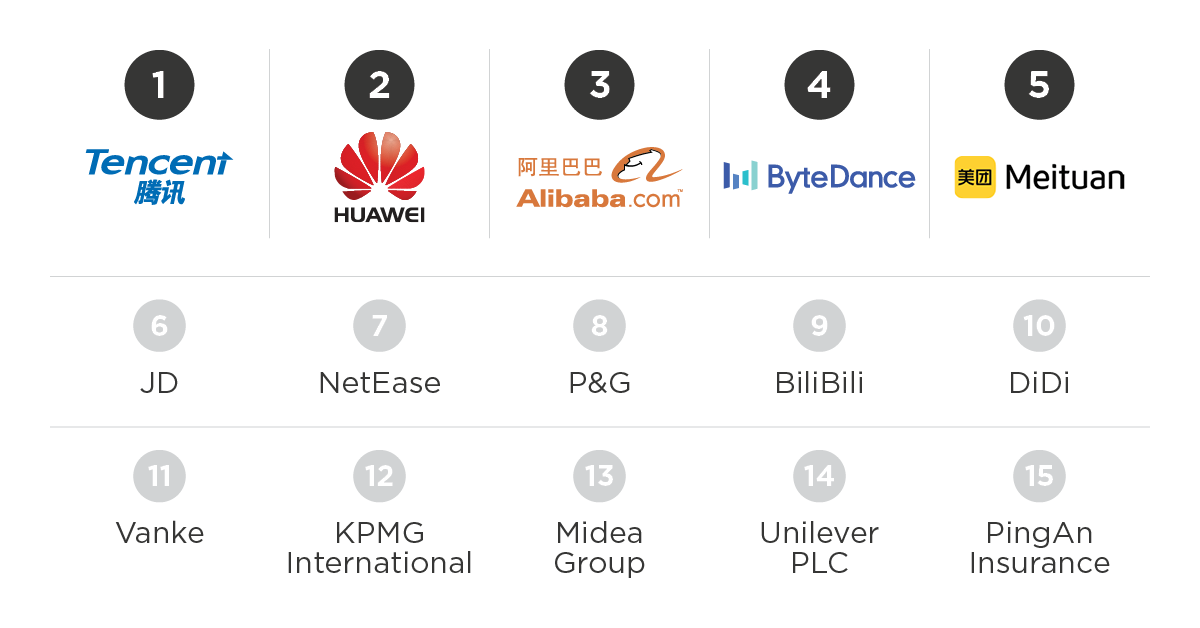Due to Covid-related restrictions, more western talents are shielded away from China. Latest statistics from Business Climate Survey in China (Source: Business Sweden/Swedish Chamber of Commerce China) revealed that expats working at the China branch of Swedish companies significantly decreased from 2,7 per cent in 2020 to 1,5 per cent in 2021; evidently, it is tough to find new people to send out. While Swedish companies are inclined to grow their business into the Chinese market, this drives Swedish companies in China to look for talents domestically; key questions arise; what makes Swedish companies attractive in the competitive China talent market?
The Competitive Talent Market – trends
In contrast to the Western market, where employers look for experienced professionals in their late 30s, the Chinese market demands young talents who are not settled with a stable family, have high geographical mobility and have ambitions to propel themselves to a new career height. The talent challenge intensifies as different ‘new industries’ spring up in China; since there are no readily available talent pools for these sectors, graduates with transferable skill sets are creating competition for talents to the traditional industries. Attracting and retaining the best local talent is becoming an increasingly strong differentiator of success.
Gone are the days when fresh graduates dream of job opportunities at MNCs. The latest trend revealed that talents in China are turning away from multinational firms searching for a more fulfilling career. Many foreign firms still have misperceptions on the salary range in China, while Chinese tech companies are dangling huge salaries to lure talent, further snapping up the talent war by making a tempting offer.
By studying the data on ZHIHU, the most popular searching engine in China, during the last recruitment peak season, several findings can be concluded:
- Only a minority of MNCs like P&G or Unilever remained on the top of the list for the job seekers.
- Local Tech firms are the most popular industry for job seekers. Tencent, Byte Dance & Alibaba ranked as the top three mentioned companies by the ZHIHU users.
- Tech firms are raising job positions with more appealing packages for job seekers. For example, Tencent plans to raise the starting salary of the junior position from 17k to 19k, with 6w of stocks included. Some positions are even bundled with housing subsidies and contract fees.
It is obvious that local firms (i.e. Internet, Financial, Media), especially tech firms, are more preferred by the young and talented job seekers. MNCs and traditional Swedish industries appear to be less appealing to talents in China. Thus, HR strategies to win talents over local firms have to be at the top of the agenda for Swedish companies aiming for growth in China.
The top 15 most mentioned companies in Zhihu in 2021 Autumn recruitment period

Source: Source: Zhihu/DT Finance
Compelling reward - the two-edged sword from China Companies
The company provides us with three complementary meals, but the breakfast is only available till 9:30 a.m., while working hour starts at 10; the dinner is available from 7pm but the office hour ends at 6. While employees are allowed to claim travelling expense after 9pm or even at weekend, if overtime working is needed.The gruelling work culture that fuelled the incredible rise of China’s tech firms is symbolised most notoriously by the term “996,” referring to making employees work from 9 am to 9 pm, six days a week – or even the longer ‘007’. Despite the strengthened regulation on working hours, the working atmosphere in Chinese firms are still filled with the smell of strong competitiveness, and employees may still work overtime unconsciously. The fact that the more effort paid, the more return will be obtained did provide a strong motive for employees to work. Yet, as time passes, they may feel demotivated to work under such a hectic style. Some may start to lose their original passion for their job.
Talent pool situation in China – the search for work-life-balance
It is essential to gain complete insight into the Chinese labour market and benchmark the salary level, to offer a reasonable wage and use the recruitment budget wisely. But other factors are found to be crucial for a talent recruitment package. Recent research by China Youth Daily revealed that more than 40 per cent of Chinese employees are also taking ‘advancement opportunities’ as a major concern for their turnover intention, while ‘working culture’ and ‘wellness at work’ is also considered as a determining factor for 26.6 per cent and 25.2 per cent of respondents respectively. After all, a high salary will not help your employee stay motivated for a long period; only a workplace that brings a heightened sense of belongings to your employees help to retain your talents.
We have observed that Swedish companies tend to hire talents with high proficiency in English, overseas studying/living experience, or experience working for international firms in China. Talent with such a profile usually earns a higher salary than the market rates. Lack of work-life balance at Chinese companies is proven to be a key problem, in contrast to the Swedish work culture. Swedish companies are advised to attract talent by marketing Swedish and your company’s core values and culture. With a culture that offers flexibility and agile working as one of its central pillars, it firmly places Sweden and the rest of Scandinavia on the positive side in the work-life balance map. Swedish companies focus on fewer hours but higher productivity. There is no strict hierarchy in Swedish work culture; organisations are generally flat with short reporting structures, which create room for better teamwork and higher creativity.
Therefore, Swedish companies should emphasise these unique company values to create a higher value of human resources management. By doing so, Swedish companies could offer a recruitment package that is more adapted to the market context of China.
Factors affecting turnover intention for Chinese Employees

Source: Survey by China Youth Daily 2021
The way forward – our recommendations to Swedish companies in China
Challenged by the volatile job market in China companies, we advise the Swedish companies to:
- Conduct position evaluations for roles to be hired, deliver stronger job descriptions, and improve your postings to attract qualified, motivated applicants.
- Do your homework to research China’s labour market, e.g., choosing the right talent recruitment platforms, benchmark the salary levels for the position to offer a comprehensive compensation package and ensure not to underestimate local labour cost.
- Actively scout for candidates that may suit the position and be proactive in getting in touch with the identified candidates to introduce the position.
- Build a clear career path for employees that clearly display the possible paths for progression.
- In addition to monetary incentives and bonuses, Swedish companies should also attract and motivate employees through non-monetary incentives and other “soft” values as employees are expecting regular, flexible, and holistic benefits that add value to their personal and professional lives.
Contact
Please do not hesitate to contact us for a more in-depth discussion on your business expansion and how we could assist your company to build your China-organisation.
- Carrie Chan, Senior project leader & recruitment specialist China.
- Linda Bradley, Trade Commissioner and Office Manager Hong Kong.





